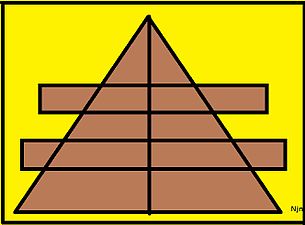Lambs and Tigers
This article does not cite any sources. (May 2017) |
The Lambs and Tigers Game locally referred as the Game of Goats and Tigers (Tamil: Aadu puli aatam, Telugu: Meka puli aata, Kannada: Aadu Huli aata) or Pulijudam, is a strategic, two-player (or 2 teams) leopard hunt game that is played in south India. The game is asymmetric in that one player controls three tigers and the other player controls up to 15 lambs/goats. The tigers 'hunt' the goats while the goats attempt to block the tigers' movements.
Trivia[edit]
- This is the ancient game played in southern part of India especially in the states of Andhra Pradesh, Karnataka and Tamil Nadu.
- The board is drawn on parapet inside the mahadwara of the Chamundeshwari temple atop Chamundi Betta (hill) in Mysore, Karnataka
- This game helps people to develop strategy and concept of teamwork by teaching that even though weak, if united, one can vanquish the stronger enemy as a team.
- This game is very similar to the Korean game of Yut.
Names[edit]
- Aadu Puli Attam (Goat Tiger Game) – Tamil
- Puli-Meka / Puli Joodamu (Tiger Gambling) – Telugu
- Huli Ghatta (Tiger Game) or Adu Huli (Goat Tiger), Huli Katti (Encage the tiger) – Kannada


